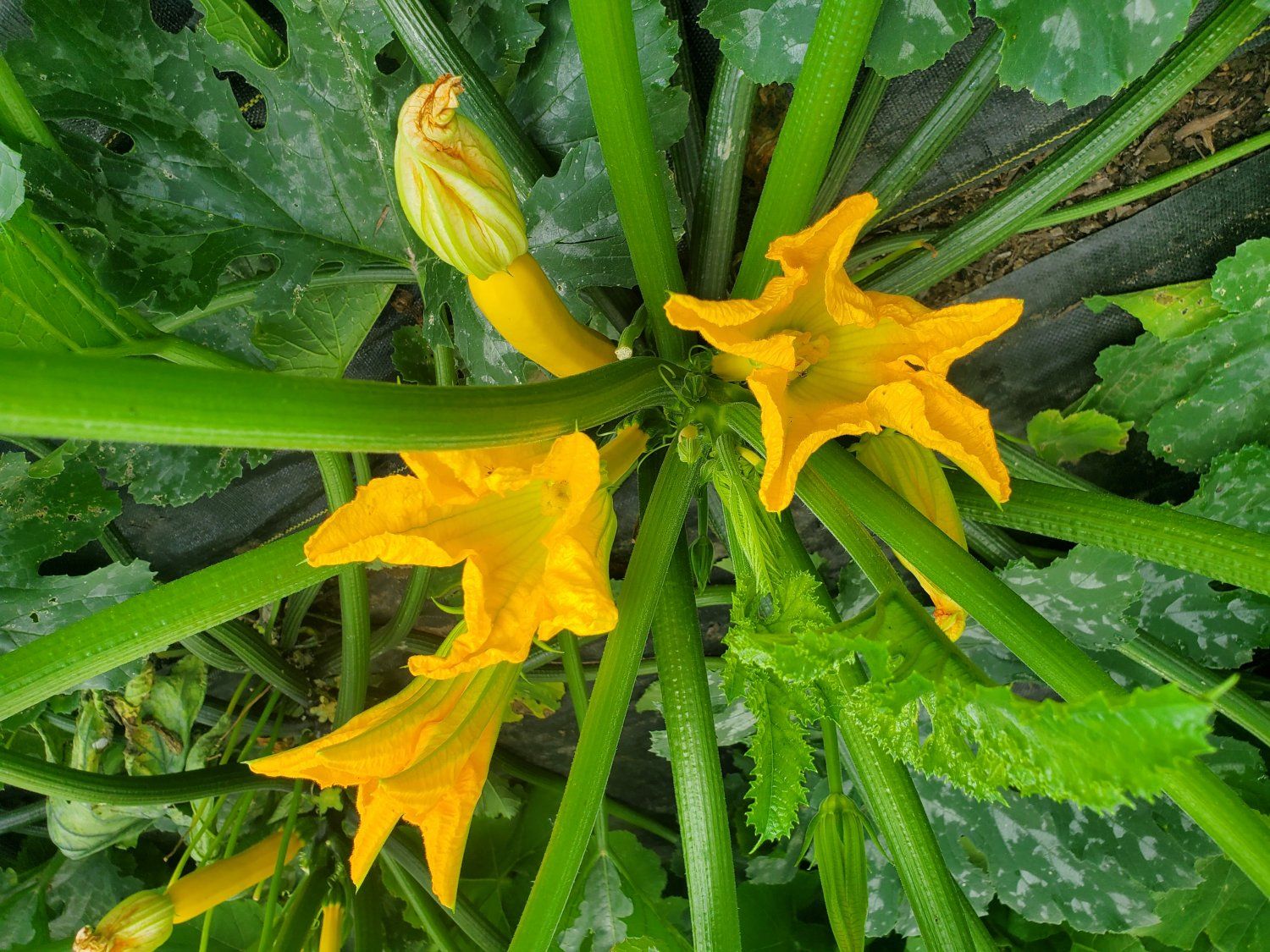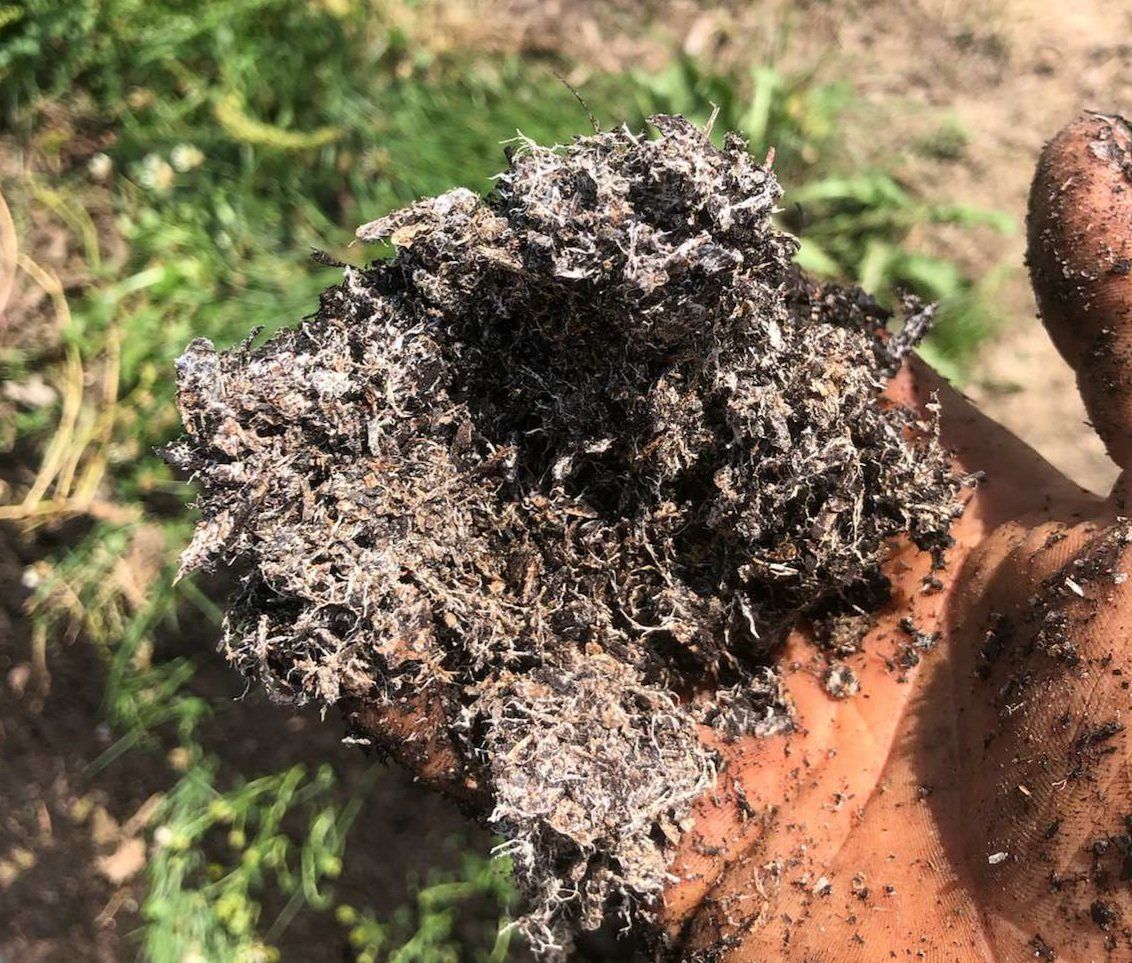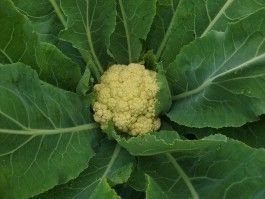July 15, 2021
The Lettuce Rejoice!
Firmly Rooted Farm's Newsletter for their Veggie Loving Farm-ily

On the Farm: Diversity Comes in Many Vegetables
Hello again my veggie loving friends,
This week on the farm saw a nice balance of a little heat and a little rain. I love summer rain with thunder and lightning. I find the experience to be invigorating, and the challenge of working in the rain to be life-affirming.
It's time to start planting in earnest. This past week the ginger and turmeric found new homes in the high tunnels, and next week we start planting outside for fall. Fall carrots and beets will go in as well as a plethora of fall brassicas.
Brassica is a plant genus, in the family Brassicaceae. An impressively wide variety of vegetables are derived from only two brassica species; B. rapa and B. oleracea, or wild mustard and wild cabbage. Wild mustard, native to the mountains near the Afghanistan-Pakistan border, has been artificially selected over hundreds of years, producing commonly eaten cultivars such as turnip (one of the oldest cultivated crops), bok choi, napa cabbage, mustard greens, and rapini, among many others. Wild cabbage is native to the eastern Mediterranean, although found in other regions of the world. The plant has been artificially selected for flower buds to create broccoli, leaf buds to create brussels sprouts, terminal buds to create cabbage, enlarged stem to create kohlrabi, flower clusters to create cauliflower, and leaves to create kale, as well as many other vegetables. Interestingly, kale has been cultivated and eaten by humans dating as far back as the ancient Greeks and Romans. There is also archeological evidence that shows brassica seeds were saved during the Neolithic era, suggesting brassicas were one of the first crops to ever be domesticated.
I find it incredibly interesting to learn the history of various plant domestication processes. Not too many years ago, kale went through a renaissance. It was the “new” superfood to be eaten, promoted by chefs, foodies, nutritionists, and the like. The irony is how very much not new kale was at all. It was simply a new spin on an already well-loved crop, dating back to the time of the ancients. That being said, growers and breeders continue to develop new cultivars of brassica species. Brussels sprouts comparatively, are not very old, having only been around since the 1800s. Even newer on the scene are kalettes, a cross between brussels sprouts and kale, which was only introduced to the market in 2010.
Truly, brassicas show the incredible power of artificial selection. I have only touched upon the diversity of cultivation pulled from the DNA of these plants. One reason why variation has been simple to cultivate is that brassicas cross-pollinate with each other quite easily. In fact, if breeders don’t adequately segregate their crops, they’ll end up with an incredible amount of variation growing from the next years' seed. However, this doesn’t mean it’s easy to create a stable new cultivar, genetics are a touch more complicated than that. DNA expression may vary from generation to generation until undesirable traits have been bred out. Kalettes, as mentioned earlier, took 15 years of breeding and selection before they were ready to be introduced to growers and consumers.
Brassicas are nutritious, beautiful, and diverse. Think about how many vegetables you consume that are derived from just these two plants, B. rapa and B. oleracea. If you took them away, a large chunk of our diet would disappear. So thank you, to the Neolithic growers, the ancients of Greece and Rome, and to hundreds of other breeders and growers, for providing us with such an array of delicious, abundant, hearty, healthy vegetables.
Kitchen Corner

We grow dino kale, curly kale, green cabbage, napa cabbage, bok choi, mustard greens, turnip, broccoli, kohlrabi, cauliflower, the list goes on. There are simply too many options of what to do with these vegetables. Sautée, roast, grill, eat raw in a salad, ferment, pickle, yet again the list goes on. But today I’ve decided to share a nice light kale salad with you, enjoyable in the warm weather and quite complementary to our farm, as we nearly always have kale.
Kitchen Clean-Up
If people need to make changes to location, place a hold on their farm share, or make any other alterations to their account that may affect the coming week, these changes must be done by Monday at 10 pm, otherwise, they will not go into effect until the following week.
That’s all for now folks, happy eating until next time!
Farmer Erika




